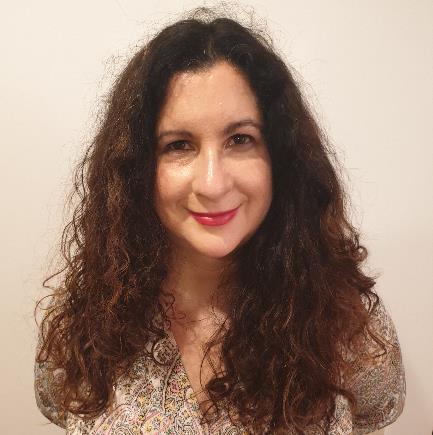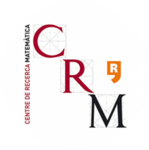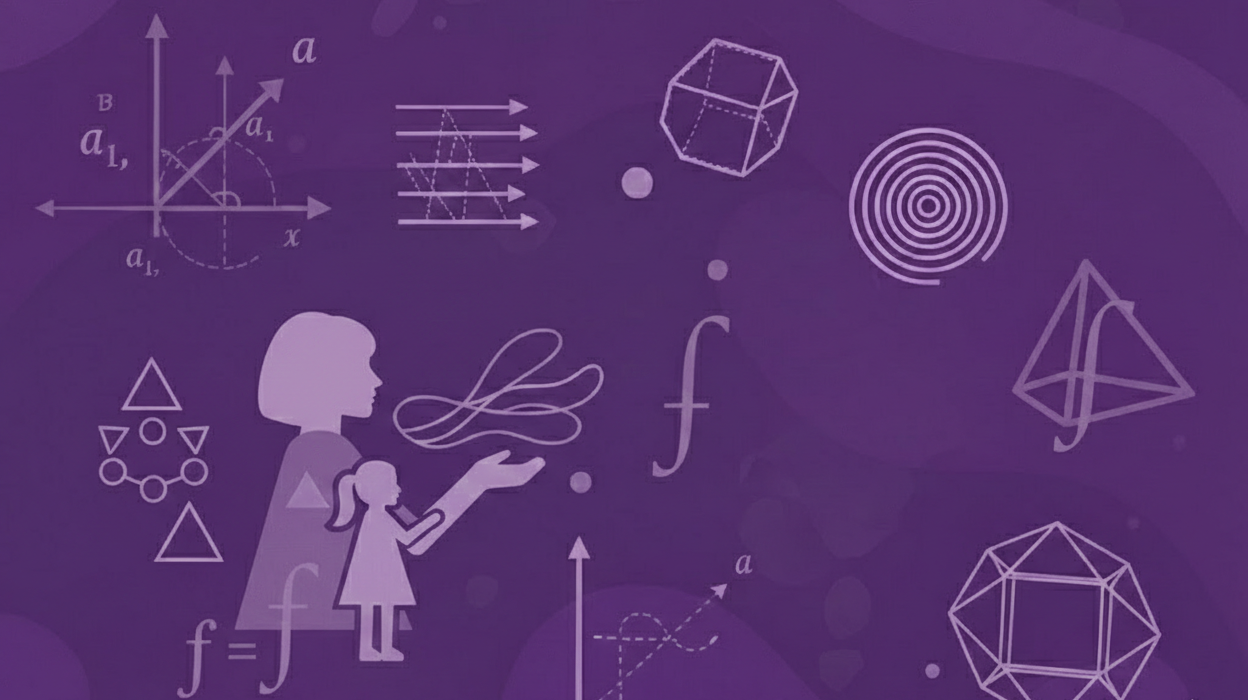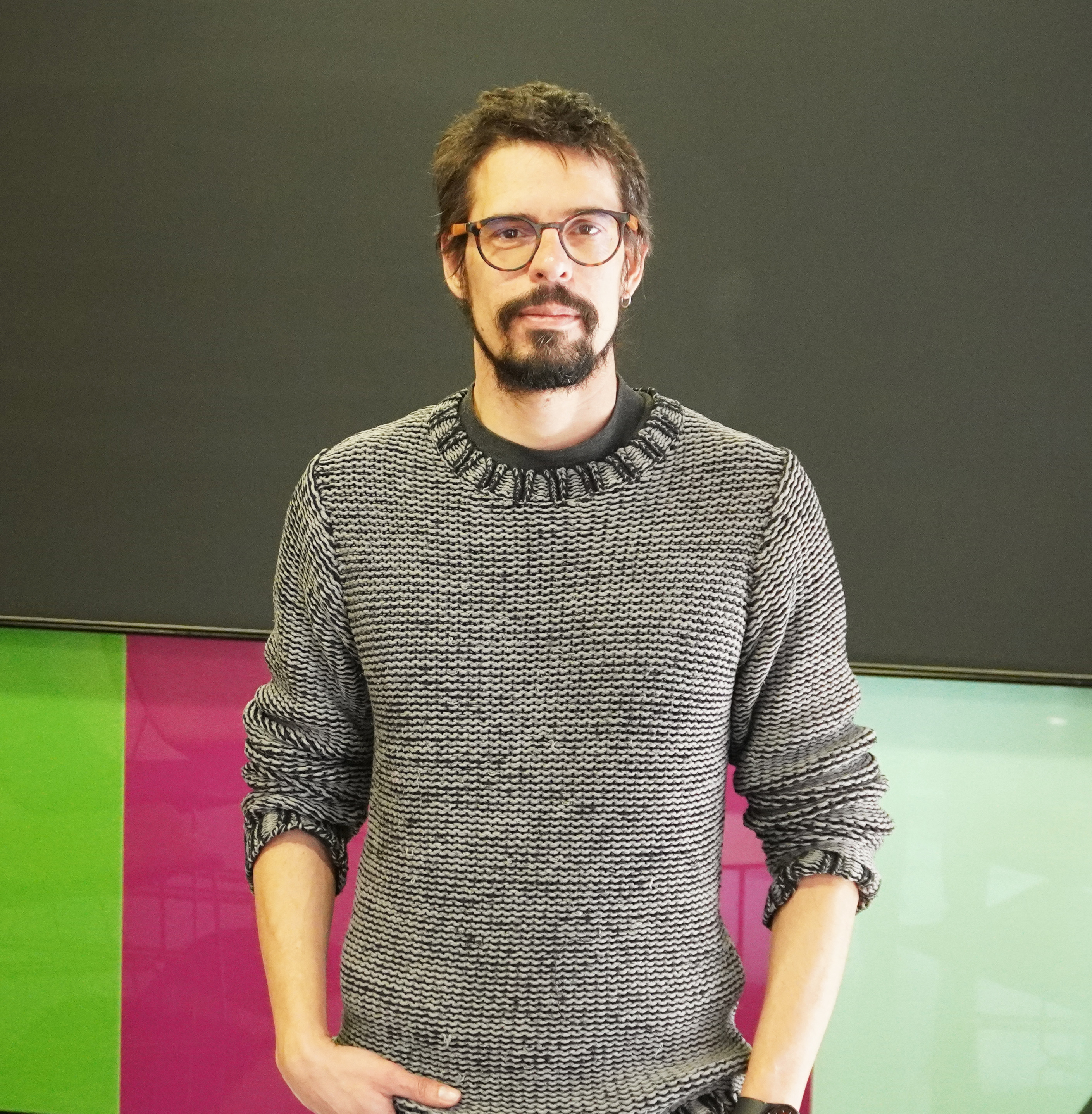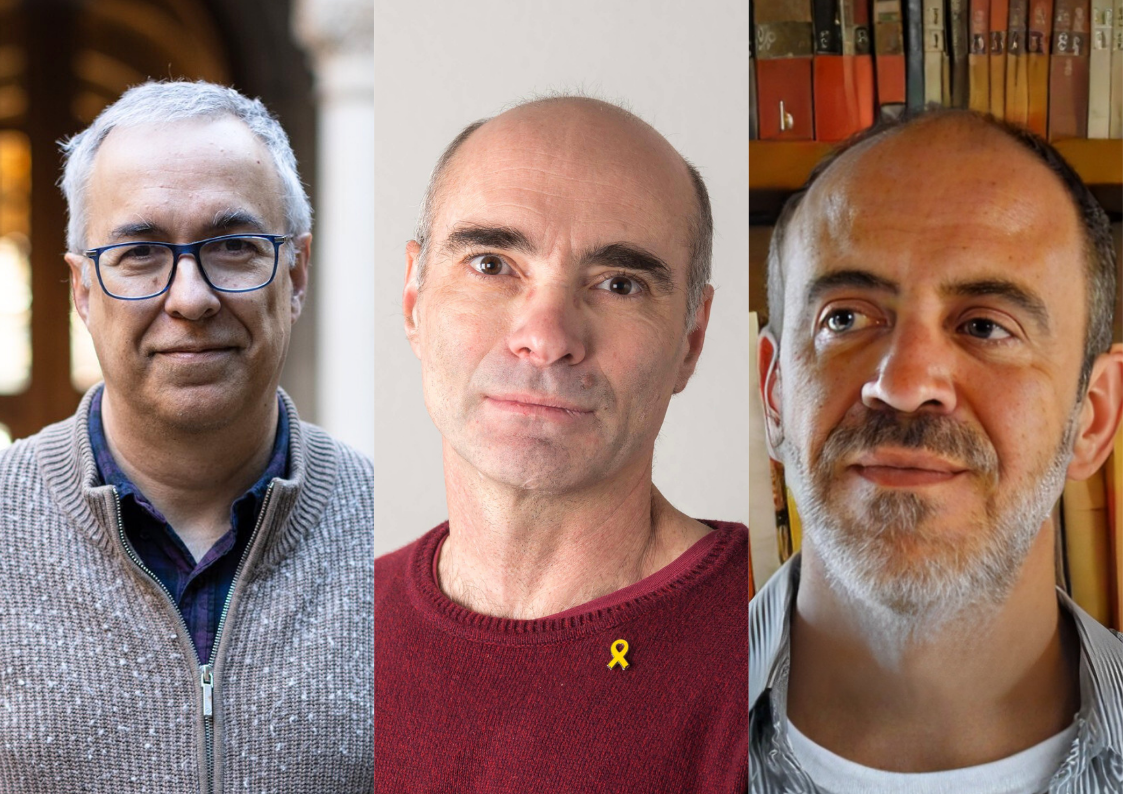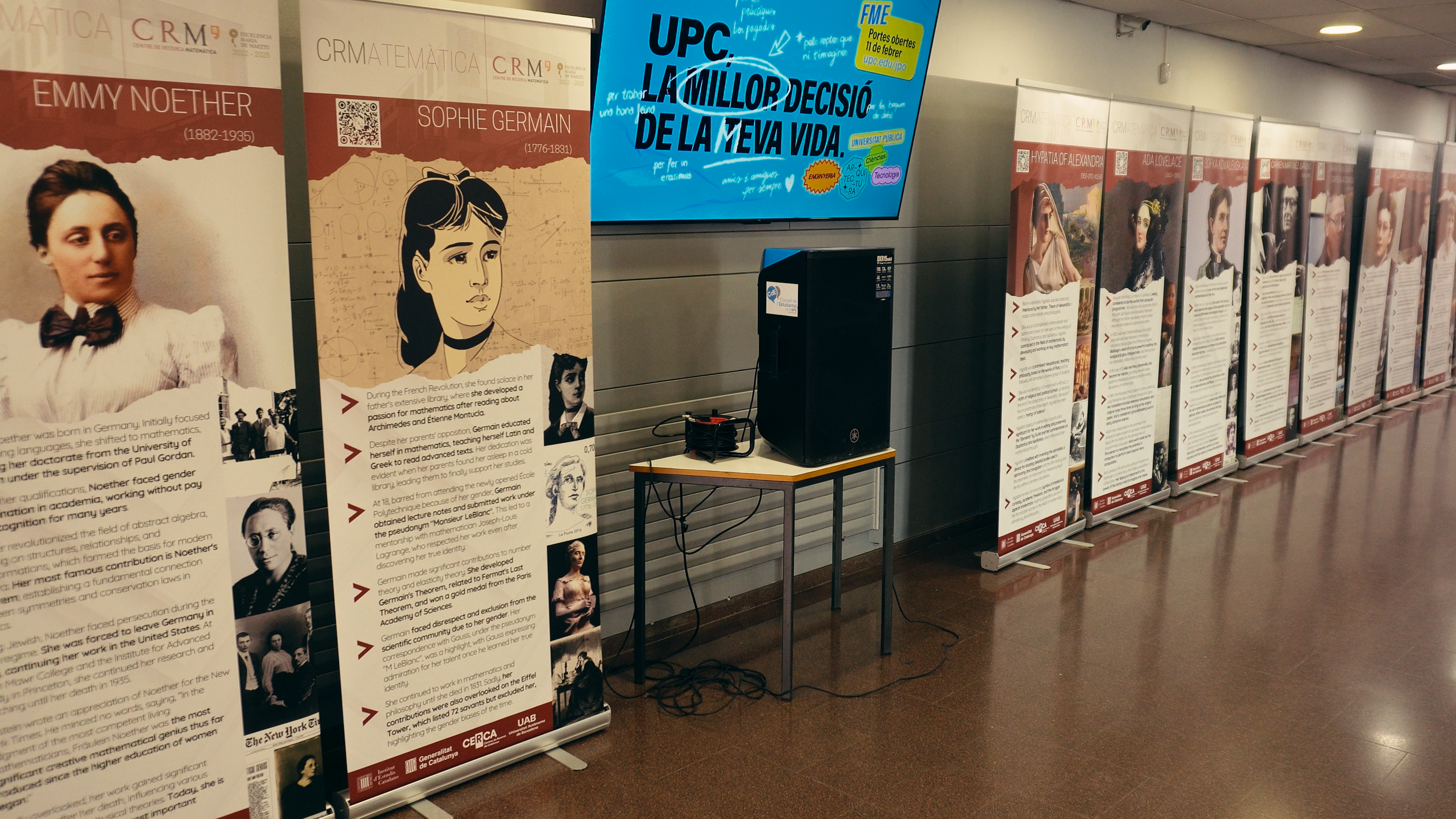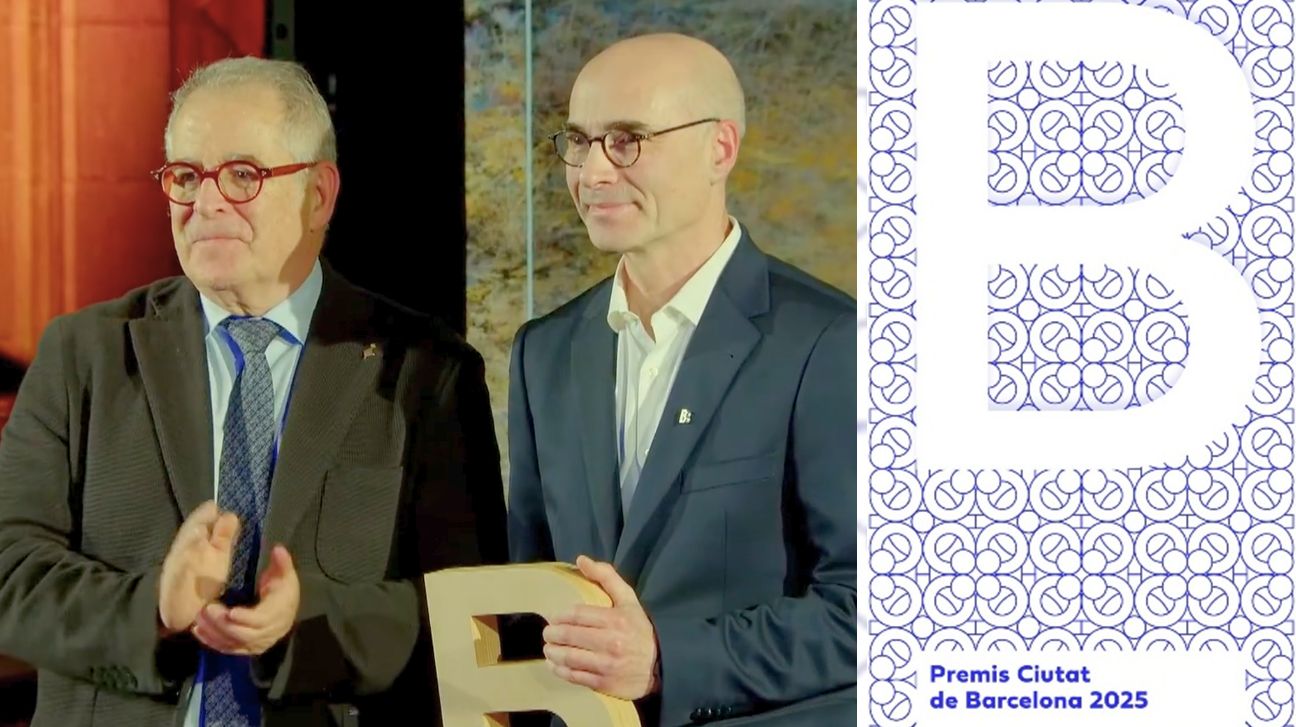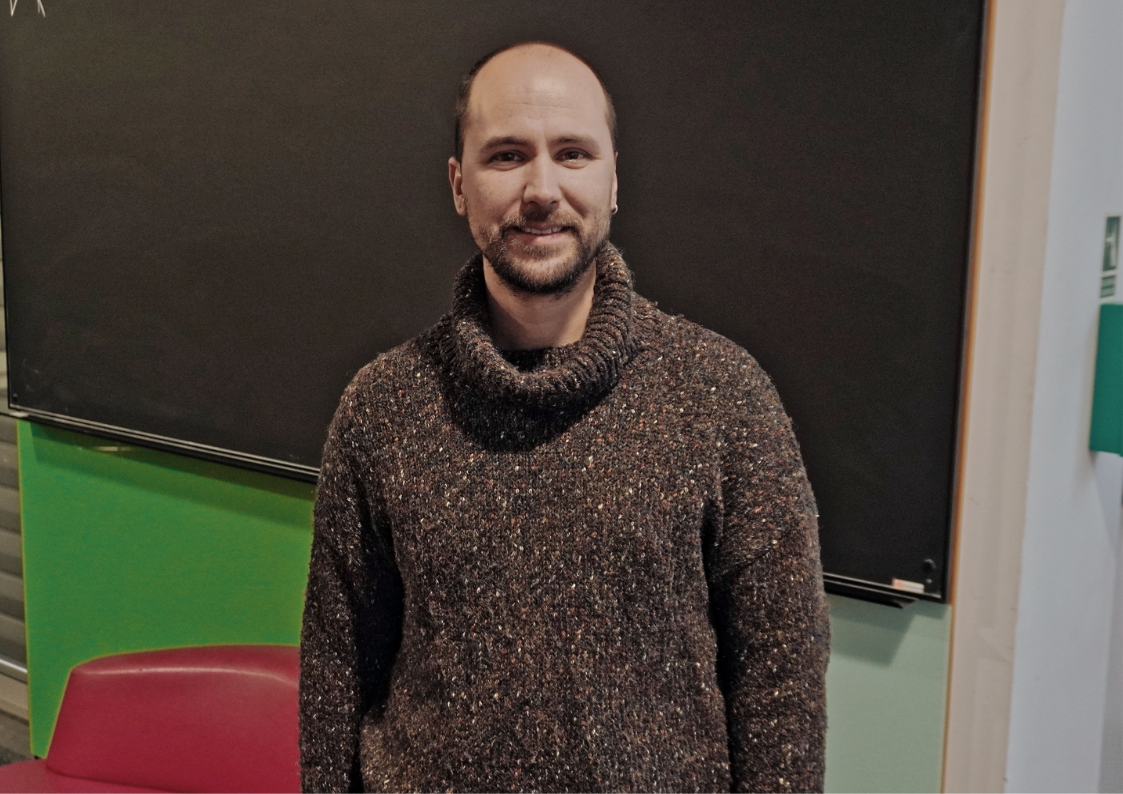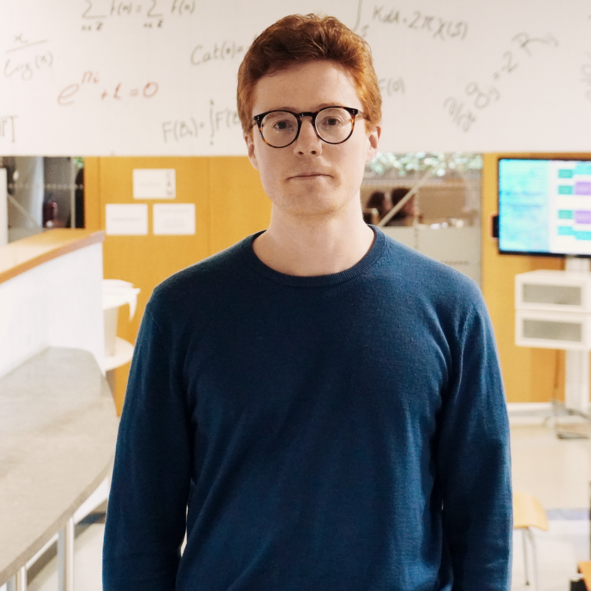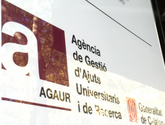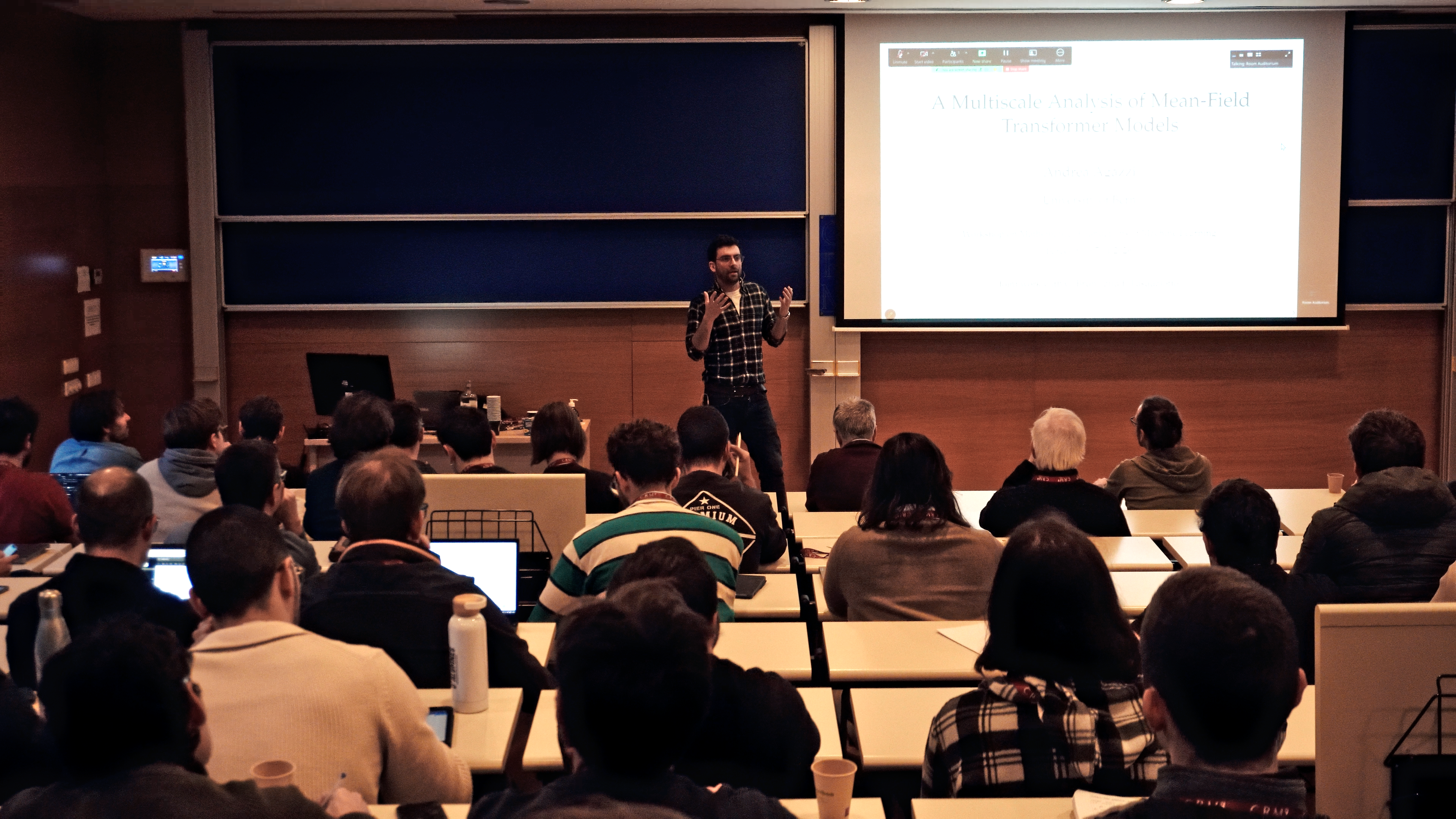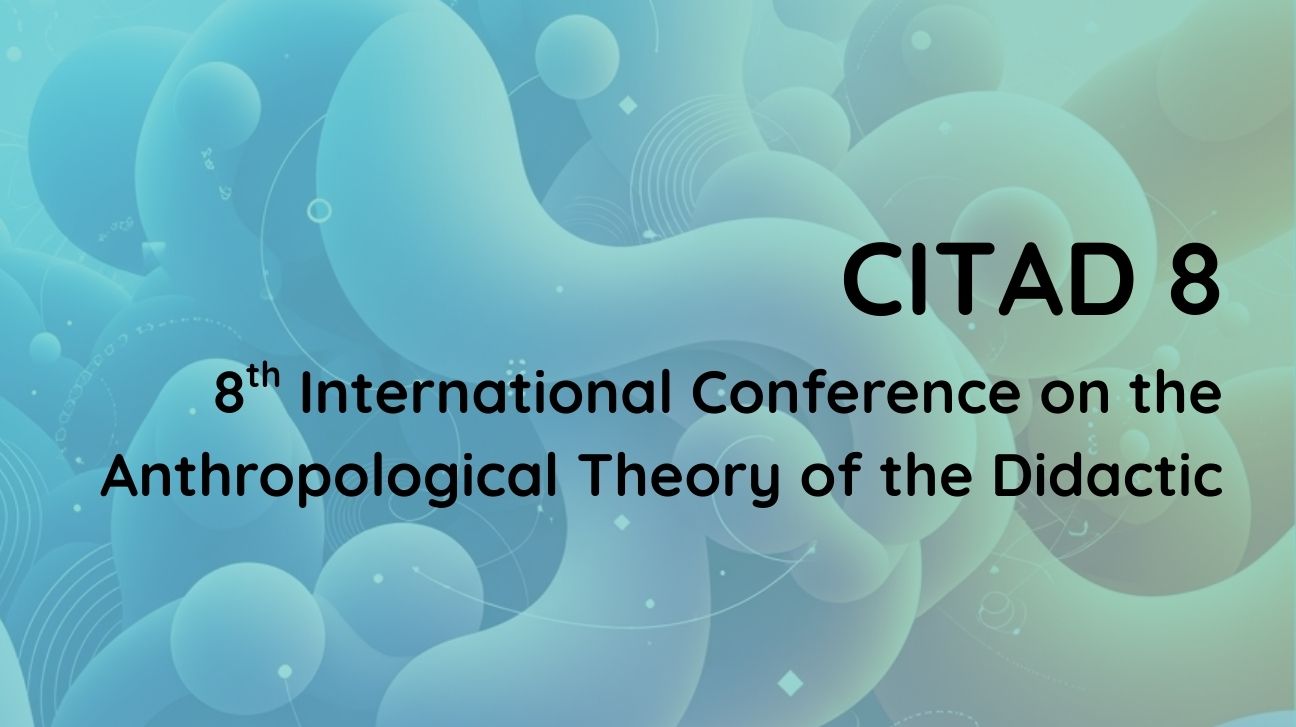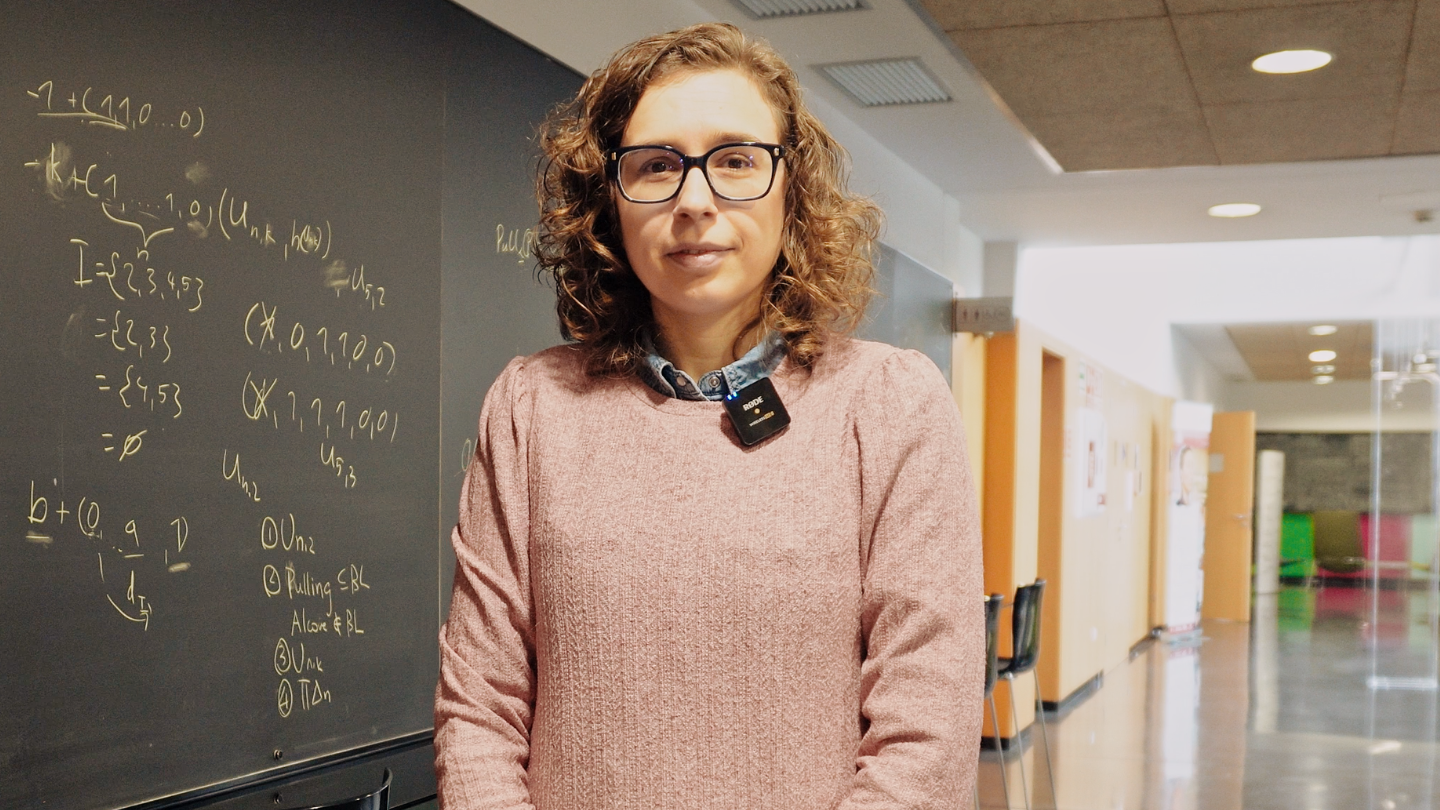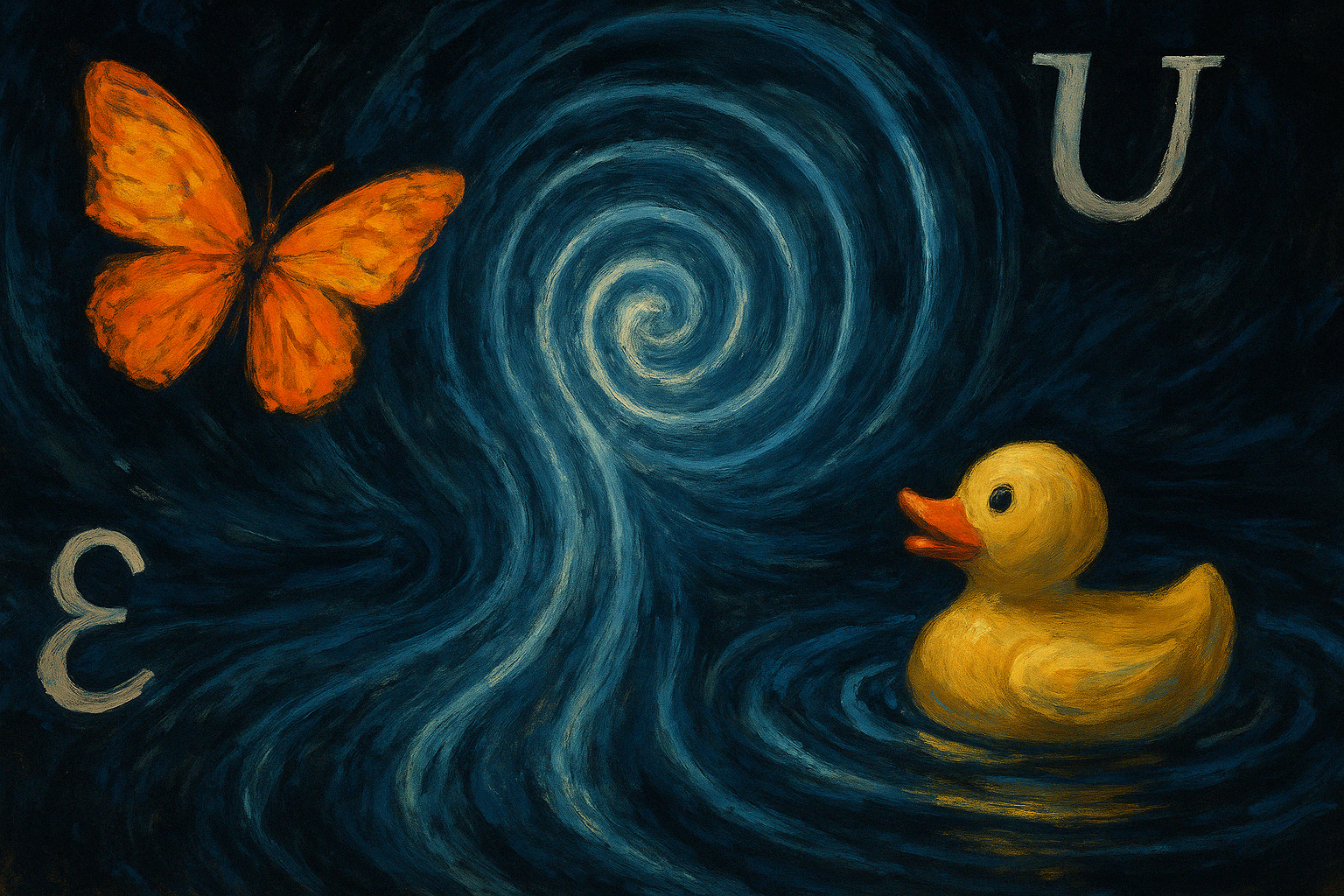
Eva Miranda, professor of mathematics at the Universitat Politècnica de Catalunya (UPC) and affiliated researcher at the Centre de Recerca Matemàtica (CRM), is one of the featured experts in an article by the international publication Quanta Magazine that explores one of the most profound questions in modern science: are there limits to what we can ever know about the physical world?
The article, titled Next-Level Chaos Traces the True Limit of Predictability and published on March 7th, examines how chaos theory, originally concerned with systems sensitive to initial conditions, is evolving into a more radical conceptual landscape: undecidability. If classical chaos already shattered our hopes of perfect prediction by showing that small differences in starting conditions can lead to wildly different outcomes, undecidability goes a step further. It does not stem from imprecision, but from the intrinsic structure of certain systems that defy computation entirely.
As Miranda explains, classical chaos is the realm of the butterfly and the hurricane, a world where evolution is deterministic but practically unpredictable. “It’s the dance of shadows,” she says, “a choreography of dynamical systems that elude our grasp not because they lack order, but because that order escapes us.” Undecidability, by contrast, emerges when a physical system (a fluid, a planetary orbit, a mechanical structure) is so rich that it can encode any computation, like a Turing machine. And when that happens, the halting problem enters the picture: no algorithm can determine whether the system will evolve in one way or another.
“Undecidability is something else entirely; colder, more philosophical, and perhaps more disquieting,” she adds. “It’s a closed door we may knock on forever without knowing if it will ever open.”
Within this context, Miranda and her collaborators, Robert Cardona, Daniel Peralta-Salas, and Francisco Presas, designed a theoretical fluid system that encodes the operations of a Turing machine. In this setup, a particle (symbolically represented by a rubber duck) follows a trajectory that simulates a computation. Predicting whether the duck reaches a certain area is equivalent to solving the halting problem, a provably unresolvable problem. This means that, in principle, even with perfect knowledge of the system’s initial state, no definitive prediction can be made.
“Some systems are so complex, so capable of encoding processes, that they simulate any computation,” Miranda explains. “And when that happens, we enter the realm of problems that are not difficult, but impossible.”
Beyond the sensitivity to initial conditions lies a deeper void. “Some systems contain, at their core, regions of mathematical silence,” she says. “It is precisely this silence, this space where even logic cannot advance, that fascinates us. As Emily Dickinson wrote: ‘The brain is wider than the sky.’ But even that brain, reaching out through conjectures, proofs, and intuitions, sometimes meets skies that will never be crossed. And perhaps it is in those limits that we truly begin to understand.”
This contribution is part of a broader intellectual shift, one that Quanta Magazine has chronicled in its Quanta Fundamentals series. In a related piece, How Chaos Theory Makes the Future Unpredictable (March 31, 2025), the magazine revisits the origins of chaos theory, from Edward Lorenz’s butterfly effect to more recent understandings of nonlinear dynamics in fields ranging from meteorology to orbital mechanics.
Miranda sees the growing presence of undecidability in physics not as a limitation, but as a transformation. “The 20th century already cracked some certainties with relativity and quantum mechanics,” she says. “But now the shift is subtler, more internal. It doesn’t come from the lab or the telescope, but from a change in perspective: we’re beginning to suspect that some questions don’t just lack answers, they lack meaning within our systems.”
She highlights that these logical boundaries, long familiar to mathematicians, are now surfacing in concrete physical contexts: “In celestial mechanics, fluid evolution, and Hamiltonian systems with symmetries, we are beginning to encounter questions that may be undecidable, not because we lack data, but because of the system’s internal structure.”
In this changing landscape, Miranda also underscores the importance of high-level science communication. “Magazines like Quanta are a necessary exception in the midst of all the noise,” she says. She believes such platforms bridge the artificial divide between science and culture: “They remind us that doing mathematics or physics is also a way of seeing the world, of listening to it, of translating it. Communicating it well doesn’t mean watering it down, it means sharing its essence.”
|
|
CRM CommPau Varela
|
Trivial matemàtiques 11F-2026
Rescuing Data from the Pandemic: A Method to Correct Healthcare Shocks
When COVID-19 lockdowns disrupted healthcare in 2020, insurance companies discarded their data; claims had dropped 15%, and patterns made no sense. A new paper in Insurance: Mathematics and Economics shows how to rescue that information by...
El CRM Faculty Colloquium inaugural reuneix tres ponents de l’ICM 2026
Xavier Cabré, Joaquim Ortega-Cerdà i Xavier Tolsa, tots tres convidats a parlar al Congrés Internacional de Matemàtics del 2026, protagonitzaran la primera edició del nou col·loqui trimestral del Centre el 19 de febrer.El Centre de Recerca...
L’exposició “Figures Visibles” s’inaugura a la FME-UPC
L'exposició "Figures Visibles", produïda pel CRM, s'ha inaugurat avui al vestíbul de la Facultat de Matemàtiques i Estadística (FME) de la UPC coincidint amb el Dia Internacional de la Nena i la Dona en la Ciència. La mostra recull la trajectòria...
Xavier Tolsa rep el Premi Ciutat de Barcelona per un resultat clau en matemàtica fonamental
L’investigador Xavier Tolsa (ICREA–UAB–CRM) ha estat guardonat amb el Premi Ciutat de Barcelona 2025 en la categoria de Ciències Fonamentals i Matemàtiques, un reconeixement que atorga l’Ajuntament de Barcelona i que enguany arriba a la seva 76a edició. L’acte de...
Axel Masó Returns to CRM as a Postdoctoral Researcher
Axel Masó returns to CRM as a postdoctoral researcher after a two-year stint at the Knowledge Transfer Unit. He joins the Mathematical Biology research group and KTU to work on the Neuromunt project, an interdisciplinary initiative that studies...
The 4th Barcelona Weekend on Operator Algebras: Open Problems, New Results, and Community
The 4th Barcelona Weekend on Operator Algebras, held at the CRM on January 30–31, 2026, brought together experts to discuss recent advances and open problems in the field.The event strengthened the exchange of ideas within the community and reinforced the CRM’s role...
From Phase Separation to Chromosome Architecture: Ander Movilla Joins CRM as Beatriu de Pinós Fellow
Ander Movilla has joined CRM as a Beatriu de Pinós postdoctoral fellow. Working with Tomás Alarcón, Movilla will develop mathematical models that capture not just the static architecture of DNA but its dynamic behaviour; how chromosome contacts shift as chemical marks...
Criteris de priorització de les sol·licituds dels ajuts Joan Oró per a la contractació de personal investigador predoctoral en formació (FI) 2026
A continuació podeu consultar la publicació dels criteris de priorització de les sol·licituds dels ajuts Joan Oró per a la contractació de personal investigador predoctoral en formació (FI 2026), dirigits a les universitats públiques i privades del...
Mathematics and Machine Learning: Barcelona Workshop Brings Disciplines Together
Over 100 researchers gathered at the Centre de Recerca Matemàtica to explore the mathematical foundations needed to understand modern artificial intelligence. The three-day workshop brought together mathematicians working on PDEs, probability, dynamical systems, and...
Barcelona + didactics + CRM = CITAD 8
From 19 to 23 January 2026, the CRM hosted the 8th International Conference on the Anthropological Theory of the Didactic (CITAD 8), a leading international event in the field of didactics research that brought together researchers from different countries in...
Seeing Through Walls: María Ángeles García Ferrero at CRM
From October to November 2025, María Ángeles García Ferrero held the CRM Chair of Excellence, collaborating with Joaquim Ortega-Cerdà on concentration inequalities and teaching a BGSMath course on the topic. Her main research focuses on the Calderón problem,...

